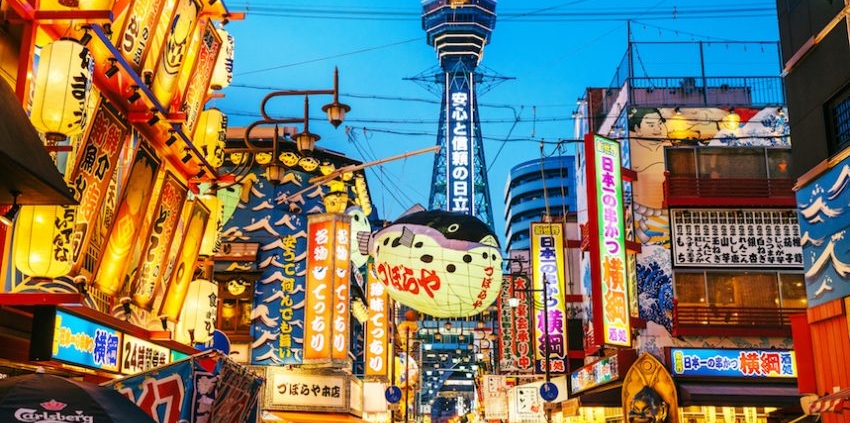This article by Steven Moe was published by the Spinoff December 4 2017
With the rise of China, Japan has taken something of a backseat in trade discussions. Lawyer Steven Moe says New Zealand’s relationship with the world’s third largest economy is still going strong, but may need some TLC.
Whenever foreign investment or overseas strategies are mentioned in New Zealand boardrooms these days it is most likely that the topic is China and its growing influence. As a result it is sometimes easy to forget that Japan and New Zealand have had a very long relationship which goes back many decades and which continues today. But what shape does that relationship take now, and what are the unique characteristics of it – and where do the opportunities lie for further growth?
The Japan New Zealand Business Council met recently in Osaka for its annual conference to discuss these and other issues. The council started in 1974, and is a member-based organisation promoting the growth of business relationships between Japan and New Zealand. This was the 44th conference, with the next one to be held in Auckland in November 2018. Participants came from large corporations, small and medium sized businesses, government and service providers. I was one of the 61 New Zealand representatives who flew to Osaka from New Zealand, out of more than 130 attendees.
To give a sense of the scale and depth of the relationship, it is first important to note that Japan is still the third largest economy in the world. Japan also is one of the top five markets for New Zealand, and is an important trading partner with New Zealand Trade and Enterprise (NZTE) at the conference putting the figure on two way trade at over NZD $7 billion.
This can be broken down further to NZ exports of $3.86 billion for the year ending December 2016, while from Japan to New Zealand the total was $3.55 billion. Dominating the trade from the New Zealand side are various natural and food products such as dairy, beef, fish, wood and aluminium, with an increasing focus on tech exports as well. From Japan, the goods mainly include vehicles, equipment and electronic goods. There is also a lot of direct investment into New Zealand by Japanese companies and approximately 100,000 Japanese tourists per year. For more on these and other aspects of the relationship some recent research called “Through the Japan Looking Glass” by The New Zealand Story Group is worth a look here.
The topics covered at the conference included the current economic outlook, infrastructure, manufacturing, trade and the potential for a free trade agreement, agriculture, science and technology. The uniting theme was sports, since the Rugby World Cup will be held in Japan in a few years, followed by the Olympics in 2020. One of the other themes to emerge in each of these sessions was the similarities faced by both Japan and New Zealand in each of these areas.
Beyond the statistics and trade figures there is something else going on though – both countries share many similarities and deep connections. Perhaps due to both being islands, each culture has a strong sense of identity and independence from the rest of the world. Both have similar landscapes with active volcanoes, rivers, lakes, forests – and earthquakes.
Unfortunately, the world’s eye on the Christchurch earthquakes in 2011 shifted across the Pacific Ocean to the major quake that hit Japan just a few weeks later. I was living in Tokyo at that time and vividly recall flying back from helping my parents clean up their house in Christchurch only to be in Japan (on the 22nd floor of a skyscraper) for the Japan earthquake.
As well as all these connections, it is also worth remembering that Japanese became one of the first Asian languages offered in New Zealand schools, and there is a generation of Kiwis who learned it. Many young people have gone on the JET programme teaching English, while others have gone there on a one year working holiday visa.
But what does all this actually mean? Perhaps it is time that Japan was placed back on the agenda at Kiwi board meetings that discuss overseas strategies. There is a ready market in Japan for quality goods, and particularly those that are foods with health benefits – but also increasingly from our world leading (and growing) tech sector. It would certainly pay to keep Japan in the picture going forward, as there are real opportunities for New Zealand businesses to explore there when they look to grow their overseas business or first start developing that strategy.
Steven Moe is a lawyer based in Christchurch at Parry Field Lawyers who recently returned to New Zealand after 10 years at an international law firms in London, Sydney and Tokyo. He works with Kiwi companies going offshore, as well as foreign companies looking to invest in New Zealand. He has a podcast Seeds: Talking Purpose where he interviews entrepreneurs and social enterprises about their journeys.
03 3488480







